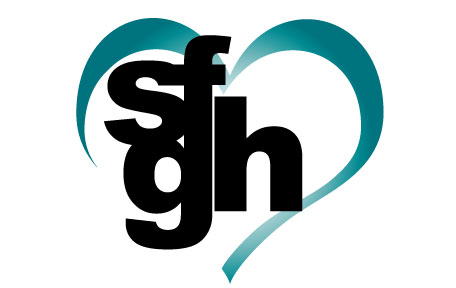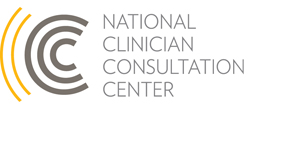
The National Clinician Consultation Center
The National Clinician Consultation Center (NCCC) is a free consultation service that provides clinicians of all experience levels with prompt, expert responses to questions about HIV testing and prevention, HIV treatment, HIV-hepatitis co-infection, pre-exposure prophylaxis (PrEP), perinatal HIV, substance use management, and post-exposure prophylaxis (PEP). All services are cost-free and confidential. Previously known as the National HIV/AIDS Clinicians’ Consultation Center, the National Clinician Consultation Center (NCCC) has provided consultation on HIV/AIDS to healthcare providers nationally over the past 25 years, with primary support from the United States Department of Health and Human Services (DHSS) Health Resources and Services Administration (HRSA)’s HIV/AIDS Bureau as part of the AIDS Education and Training Centers (AETC) program. The NCCC is looking forward to continuing its role of supporting clinicians and working side by side toward the goal of eliminating HIV in our generation.
A Crisis and the Birth of Collaborative HIV Consultation
Since 1993, the NCCC has supported primary care and specialty physicians, nurses, pharmacists, physician assistants, and other healthcare providers through direct consultation by experts with up-to-date knowledge on HIV care. As care has evolved and improved, the NCCC has worked to continually adapt to the treatment and knowledge needs of the healthcare community.
In the early era of HIV/AIDS, healthcare providers in the U.S. played a key role in confronting this serious and previously unknown condition. Zuckerberg San Francisco General Hospital and Trauma Center (formerly San Francisco General Hospital) was an early epicenter for HIV treatment, and quickly became a leader in HIV/AIDS management. The AIDS crisis soon led to new interventions to support and encourage major advances in care delivery. One of the programs to arise out of the national response to the HIV/AIDS epidemic was the National Clinician Consultation Center (NCCC), originally called the National Clinicians’ Consultation Center. These clinicians began to think creatively about how to best respond to the crisis in a way that would be broadly useful and supportive of all healthcare providers. The service, which was multi-disciplinary and multi-specialty, was a way for clinicians to get state-of-the-science advice. The goal was to improve care for patients across the country by sharing rapidly-developing information from a leading healthcare institution.
The NCCC Warmline Becomes a Leader in the HIV Field
The NCCC initially pioneered distance-based consultation with the Warmline, now the HIV/AIDS Management Consultation Service. In 1993, the Warmline was formally established as a national service of the Health Resources and Services and Services Administration (HRSA) AIDS Education and Training Center (AETC) program. The Warmline was in full operation with a staff of experienced HIV clinicians at the peak of AIDS deaths in 1993 and continued to provide support as antiretroviral medications were established as a mainstay of treatment. NCCC consultants assisted callers across the nation to implement these early antiretroviral treatments for adults, children, and in pregnancy, and remains an important clinical decision support resource for clinicians today.
Adapting to a Changing HIV-Treatment Landscape
In 1997, the NCCC expanded what began as a single project, the Warmline, into a full-fledged program with the addition of a second consultation service, the Post-Exposure Prophylaxis Service (PEPline). With the addition of the PEPline, the NCCC provides timely expert advice on management of occupational exposures to bloodborne pathogens (HIV, hepatitis B and C). The service quickly became recognized as the “national needlestick hotline”. The PEPline also provides consultation on non-occupational exposures to HIV and hepatitis from sexual and injection drug use exposures. In 1999, the Warmline and PEPline were consolidated into a formal organization, the National Clinicians’ Consultation Center. The Perinatal HIV Hotline was added in 2004 to address the consultation and education needs for the care of women who are at risk or living with HIV who are planning on getting pregnant, during labor and delivery and postpartum, as well as HIV-exposed infants. In 2014, the NCCC added a Pre-Exposure Prophylaxis Hotline (PrEPline) to provide consultation on PrEP as a new prevention tool. The NCCC’s latest service, the Substance Use Warmline, was launched in late 2015 to assist clinicians seeking advice on substance use evaluation and management. The NCCC has provided over 250,000 clinical consultations since its inception. You can learn more about the Center’s funding partners on Our Partners page.
Expanding to Improve Access to Expert Consultation
The NCCC’s mission is to improve patient health outcomes by building the capacity of healthcare providers through expert clinical consultation and education. The Center is continuously expanding to additional management areas and disease models as needs arise in the healthcare community. Additionally, the Center’s ability to provide consultation has expanded to a new modality — online consultation. The NCCC’s prominence in supporting and guiding HIV care nationally is evident in its faculty presence on national Guidelines committees, in major publications, and in HIV and AIDS working groups around the country.
The NCCC works closely with HRSA programs, such as the training and education programs provided by the AETCs, and with the CDC to continue to enhance access to best-practice care and prevention models, and provides special consultation to federal and state groups, such as the Federal Bureau of Prisons and the Indian Health Services, to address unique needs. And most importantly, as clinicians’ consultation and education needs change with the changing face of HIV and the changing structure of health care, the NCCC strives to seek ways to meet new needs.
All of our services are free of charge. You can help with individual donations and contributions of any size. You can make a donation through the San Francisco General Hospital Foundation.
 University of California, San Francisco |
University of California, San Francisco |
